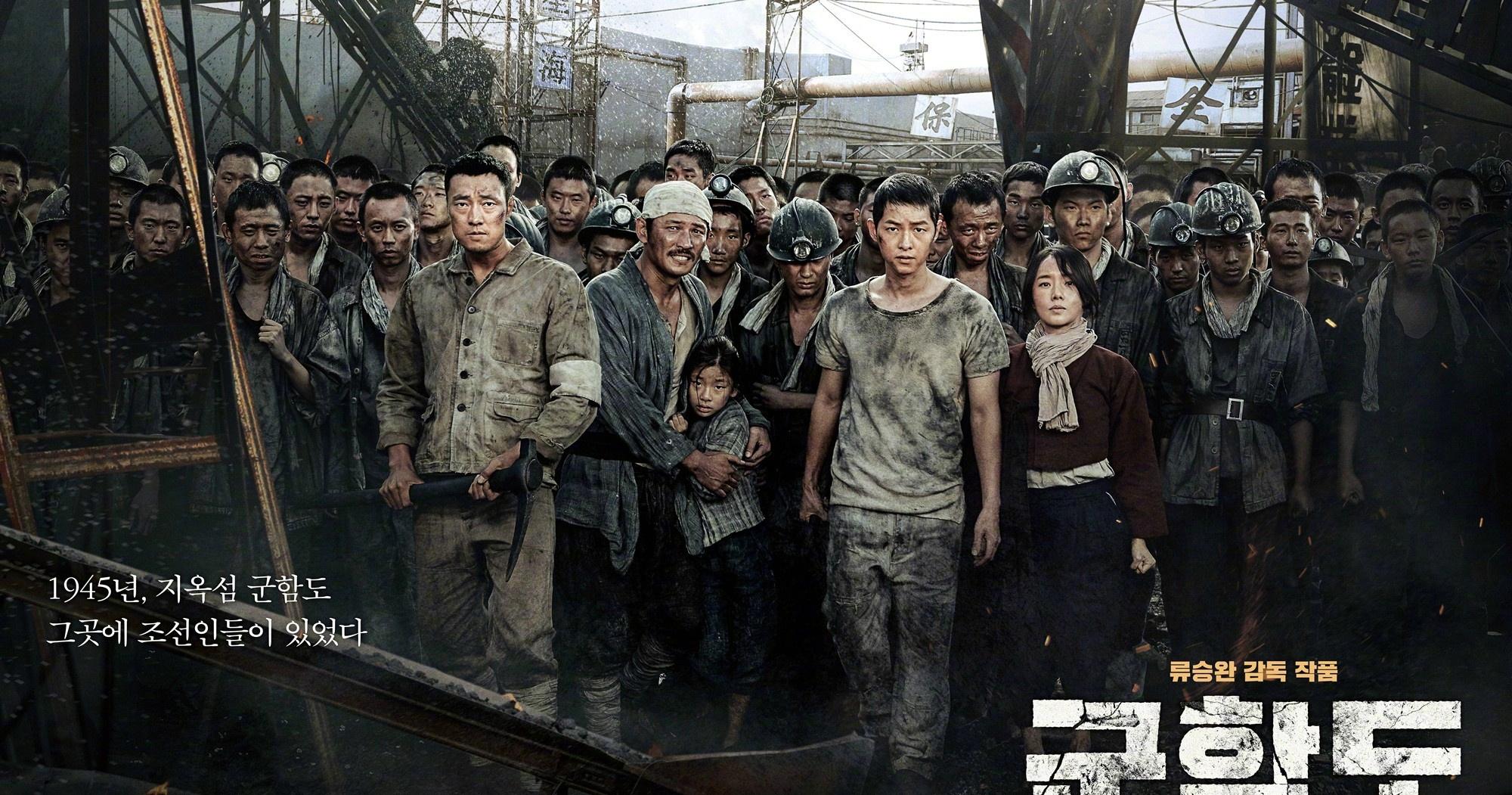
"Gunkanjima" is a masterpiece of Korean cinema in recent years, costing 22 billion won, in order to achieve realism, in Incheon, with an area of nearly 4 hectares, to create a nearly two-thirds of the size of Gunkanjima, the film filming time of up to half a year, telling a Korean in the World War II Japanese rule, in the End Island was unfair to the human purgatory story. Before watching "Managaha Island", it is recommended that you can first understand this historical background, which is more conducive to watching the movie.
Gunkanjima is now Nagasaki, Japan's famous sightseeing spot Hashima, 17 kilometers away from Nagasaki, because of the shape of a warship and named, this semi-artificial island, was once an important coal production area in Japan, in 1890, the ownership of the coal mine in Hashima was sold to the Mitsubishi Company, since then for 100 years, Hashima is almost the private property of the Mitsubishi Company, until 2001, Mitsubishi Company transferred the Island of Warship Island to the Nagasaki City Government free of charge.
After the outbreak of World War II, in 1941, Japan began to implement the "Industrial Service Fighter Movement", Mitsubishi and the Japanese government had close relations, and the coal production of Hashima had peaked, but mining required a lot of manpower and was quite dangerous, so there were constant rumors that high salaries attracted workers.
At that time, most of the laborers who went to Hashima were Koreans and Chinese, many of whom were deceived by money, and some were forced by prisoners, and the movie "Gunkanjima" described this history of blood and tears.
On May 5, 2015, the International Council on Monuments and Sites, at the request of Japan, recommended that UNESCO include the "Ruins of the Industrial Revolution during the Meiji Restoration", namely the Nagasaki-Hashima Coal Pit on "Gunkanjima Island", the Miike Coal Mine in Fukuoka Prefecture and the Leeksan Reflectory Furnace in Shizuoka Prefecture, which led to strong protests from South Korean officials, which believed that Japan had not included the historical facts of labor forced conscription on the Korean Peninsula during the Japanese rule as a world heritage site, and after a strong agreement in South Korea, Japan later changed to verbal recognition of history, and it was only then that Japan and South Korea reached a consensus, and the application for the Hashima Seki Legacy was successful.
In the historical view of "Managaha Island", Japan and South Korea have quite different views, after the release of "Gunkanjima", the officials of both countries have expressed their views, the Japanese official emphasizes that the film is a creation rather than a documentary, which is different from historical facts; while the South Korean official believes that the film records the history of the time from an objective point of view.
Director Yoo Seung-wan did a lot of homework for "Gunkanjima", based on the real history adaptation, he chose the small people at the bottom as the perspective, narrating this story, in addition, he did not want to sing praises and emphasize "nationalism", but in the play, several hated teeth itch, disdainful characters are designed in the Koreans' own roles, like traitors, lackeys, and criticism of the Koreans in the situation at that time, unable to understand unity.
This is a challenge for Korean audiences with a high "national complex", but Yoo Seung-wan's "Gunkanjima" gives the value of the film a higher level by abandoning this impassioned patriotic complex, because it portrays the human nature of how people live in the context of this dark era.
The film "Managaha Island" opens with a terrible scene of human purgatory, where miners are inhumanely abused, nestled in small spaces, risking their lives to mine, but if they want to escape, facing the high walls and the sea, it is almost impossible to escape home.
In the story narration of "Managaha Island", it mainly falls on three actors, lee Kang-woo, the leader of the orchestra played by Huang Zhengmin, is a typical small person who knows how to bribe a prostitute in order to survive, and he took his daughter (played by Kim So-an) to Berhay Island to pan for gold.
Cui Qixing, played by Su Zhixie, is a bully thug who thinks he can rely on his fists to be the boss, which instead leads to the trap of the lackeys, but because of his true feelings and true righteousness, he finally makes the comfort woman who was brought to the island (played by Li Zhenxian) have a different view.
Song Joong-ki plays Park Moo-young, an elite trained member of the Independence Army, who goes to Gunkanjima island to carry out a mission to secretly rescue the Korean leader Yoon Hye-chol (played by Lee Jung-young), but accidentally discovers that he colludes with the Japanese to share the hard-earned money of other Koreans, and in the play he is a righteous hero who leads everyone to escape from Gunkanjima.
The film has many touching sections, such as the emotions of Choi Qixing and the last blood battle with the last son, deeply intertwined; child star Kim So-an has a lot of plays, whether in the geisha occasion, father-daughter affection, there are tear-inducing performances, after "Busan Trip", she performed a moving good play.